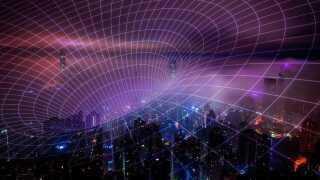Upon arrival at the Preševo One Stop Centre, it was evident our support was needed.
Refugees arrive at the camp having been directed from Miratovac. It is here that they are registered and are able to access toilets, doctors and water; however many fear they will become sick of they drink water from the taps.
The camp also offers food for the women and children and a children’s area. But they are not given vital information or any means of communication.
Extreme conditions
400,000 refugees have passed through the Preševo One Stop Centre, with an average of around 3,000 people arriving every day. The hours here are spent queuing for registration, often under a blazing sun or heavy rain in truly difficult conditions; a trying task for many who have travelled great distances.
Nevertheless, the majority of the refugees do not stay here long; for most, Preševo is a brief stop along the journey to safety.
Once the official documents have been obtained, the refugees must leave. However, depending on their time of arrival, this can take up to a day and night meaning that many have to sleep on the ground with just a blanket separating them from the cold soil. Many ask for blankets, others for food and bottles of water.
Reconnecting family links
Having identified the needs of these people, we have recently set up a free Wifi access point.
From the first moment it opened, the appreciation of the refugees was clear. With smartphones, many are able to make calls to their families via applications such as Facebook, WhatsApp and Viber as well as using the internet to bring themselves up to date with everything that has happened in their countries since their departure.
At any given time, we are able to provide free internet access for over 300 families.
An appreciated service
A particularly striking factor during our mission is the surprise of many at the gratuity of the Wifi access. Many refugees have been forced to pay extortionate prices for simple things such as travel and food, so the opportunity to regain contact with family members for free is an invaluable and highly appreciated lifeline.
Meeting and talking with the refugees is very moving. A father, accompanied by his wife and three small children, spent many hours queuing with his family. He reassures his children, hugs them, and puts his finger over their mouths indicating they should not make a sound. Ahmad left Raqqa, Syria, six days ago. The worst moment of their journey was the voyage across the waters in a boat; he really feared for his children. His home is in Syria, a magnificent country but one in which there is no longer a future for his children.
We asked Ahmad if he needed a Wifi connection; in answering the positive, we told him he could get a connection via the TSF-free-hotspot. Once connected, his face lit up as he sent a message via WhatsApp and made a call.
He also used his phone to search his home town and show us the damage there. After six days, he is finally able to communicate with other members of his family, see their faces via Skype. He smiles. The children smile too. He couldn’t thank us enough!
It really is remarkable how many people can benefit from one small smartphone and access to the internet. As many refugees tend to travel in groups, all are able to benefit from the lifeline we have been able to provide for them here at the Preševo Centre.
It is here that our mandate Communications for Life takes on its full meaning.




